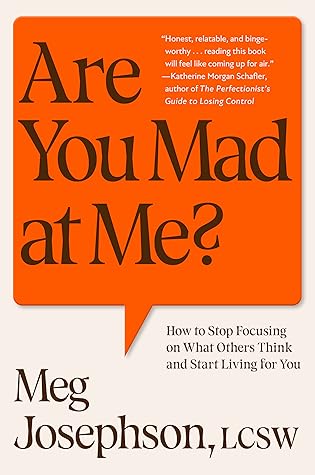More on this book
Community
Kindle Notes & Highlights
Started reading
September 3, 2025
Walker explains that a fawn response develops in chaotic home environments when a child learns that the fight response escalates the situation or abuse, the freeze response doesn’t offer much safety, and flight isn’t always a feasible option. So, as an alternative survival strategy, the child “learns to fawn [their] way into the relative safety of becoming helpful.”
When we’re often left to feel unsafe, unheard, unloved, or unseen by those who are supposed to make us feel safe, the effect is called complex trauma.
I thought everyone’s dad had a temper that could rattle the glasses on the kitchen table, and then the next hour the parents would be chatting normally about what they should do for dinner.
There can be parts that were loving and other parts that hurt, and the loving parts don’t negate the reality of the hurtful parts and the hurtful parts don’t negate the love.
I was an adult and I was still walking around with a constant feeling that I was about to get into trouble.
I was an adult and I still assumed other people’s bad moods were automatically my fault, and that I was personally responsible for managing and “fixing” their emotions.
the most painful part of childhood trauma wasn’t the trauma itself but that it was never spoken about.
When repair isn’t made, accountability isn’t taken, or conflict isn’t acknowledged, self-blame—in which we believe we are responsible for the stressor’s occurrence—becomes a natural coping mechanism.1
It’s so much safer to believe that we’re bad than to think that our parents can’t take care of themselves and therefore maybe can’t fully take care of us.
Instead of asking, “Why am I like this?” reframe it as “Of course I’m like this. It makes so much sense.”
Does being angry make me a bad daughter?
How we react to the anger is our responsibility. But the anger is allowed to be there.
You can have empathy for what your parents have gone through themselves, for the trauma they must have survived, and feel angry that you experienced what you did.
our relationship was stripped down to its barest form and I was able to see it more clearly. I realized that I was always the one to call and check in, and that my dad reached out only when he needed something from me (advice, a confidence boost, money). I’d beg him to be interested in my life, to be part of it, and I didn’t know if it was supposed to be that hard to have a close-ish relationship with your parent.
My parents healed the generational patterns that they were capable of healing, and I’m healing the ones that they couldn’t.
craving: I believe you. What you went through was really hard, and it wasn’t your fault. You didn’t deserve that. It’s no longer your job to try to make them understand.
Moving forward isn’t synonymous with “getting over it” or shoving aside your emotions.
Often this loneliness is masked by hyperindependence, a deep-rooted belief that you need to handle everything on your own, that it’s unsafe to ask for help or rely on others, because you had to be your own parent when you were so young.
When I did need someone, no one was there, so I’ve learned that it’s safer to keep people at a distance than to risk letting people in and being let down (again).
No child can be “good enough” to earn a functional childhood when their parents are in so much pain of their own and are stuck in their own unprocessed trauma.
The causes and conditions that have led us here aren’t our fault, but our healing is our responsibility.
It’s realizing that you aren’t the voice inside your mind; you’re the one who notices it.
Fawners often are waiting for the worst-case scenario to occur and have trouble believing it when good things happen, because they have always needed to be on guard.
Our brains and bodies don’t know the difference between an imagined experience and an actual experience. Physiologically, they feel the same.
People-pleasing is an unconscious way of trying to feel a false sense of control
This background noise often comes from the internalized voices of the people who raised us, as the recycled words of our parents speaking out of dysregulation.
So if your conditioned belief is When people are in a bad mood, it’s my fault or No one likes me, your brain will surely find ways to prove these beliefs are true, like scanning people’s faces to see if they thought your joke was funny (and overanalyzing their reactions).


